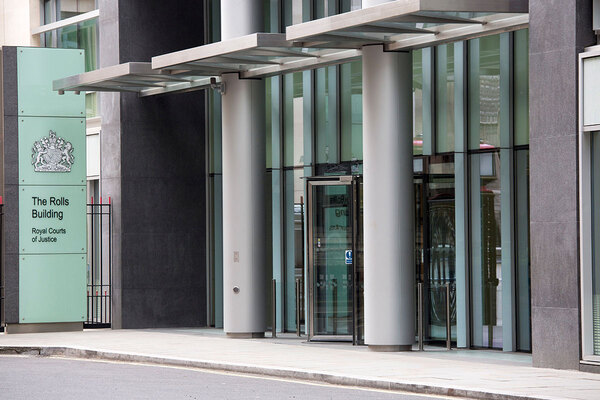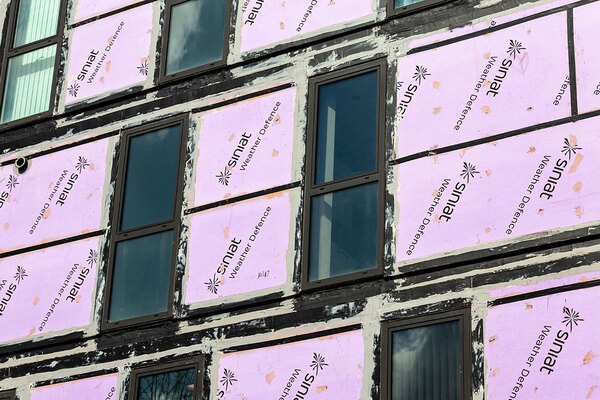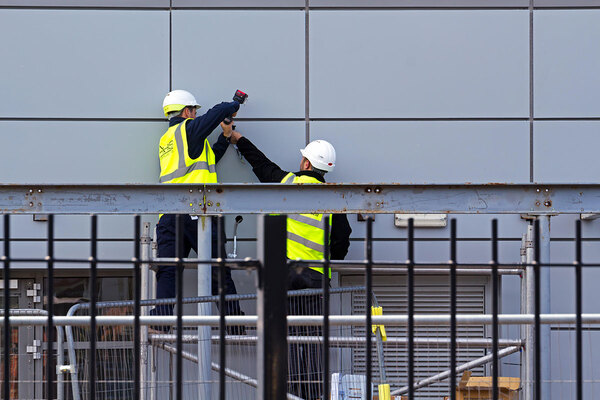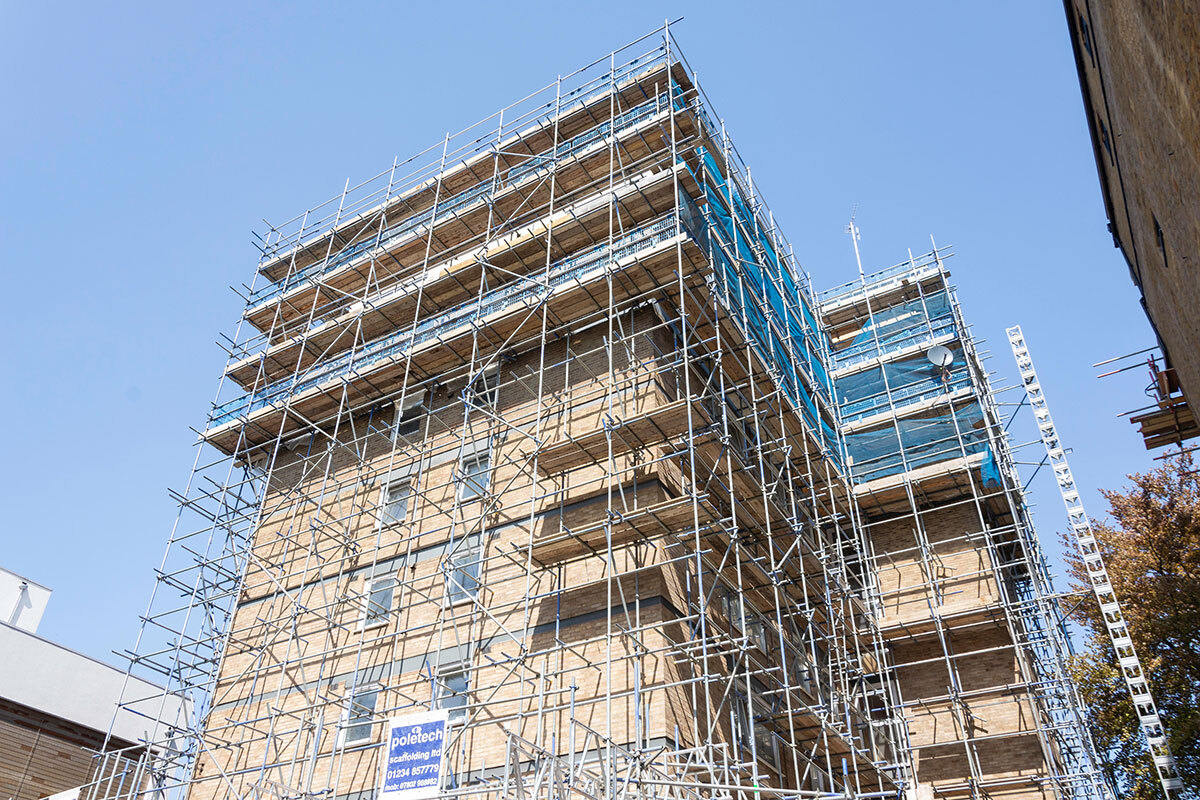You are viewing 1 of your 1 free articles
Housing association wins landmark cladding case against contractor
A contractor has been ordered to pay damages to a housing association for cladding remediation work in a landmark ruling that could have wide implications for the sector.
Essex-based contractor Mulalley & Co has been ordered to repay Hyde Group, which brought the case via its subsidiary Martlet Homes, for costs incurred to replace cladding on five tower blocks it owns in Hampshire.
Andy Hulme, chief executive of Hyde, described the judgement as a “landmark ruling”, which “establishes that the costs of defective work must be borne by those responsible for it”.
The housing associations said the case sets a principle that construction contractors can be held accountable for the remedial costs of removing dangerous cladding.
The case concerns five 1960s concrete high rises in Gosport, which were reclad in the mid 2000s by Mulalley.
Hyde, which purchased the buildings after this work was carried out, uncovered issues with the blocks in 2017, shortly after the Grenfell Tower fire.
These issues included combustible expanded polystyrene insulation boards and defects in the installation of fire barriers.
A decision was made by Hyde to remove the entire cladding system and replace it with a new, non-combustible cladding system, with the work being carried out from 2018 to 2020.
Hyde has not charged residents for the work and did not receive any government funding due to the speed with which the cladding system was removed.
In 2019, Hyde issued proceedings against Mulalley in an attempt to recover approximately £8m, which includes the cost of investigating and remediating the cladding system, as well as the waking watch that was in place while the work was being carried out.
The housing association argued that there had been breaches in the way Mulalley had installed the cladding system and that the specified cladding system did not meet the building regulations at the time of the work in the 2000s.
In response, Mullaley accepted that there were some defects in the installation of the system, but said that Hyde decided to replace the system because of the concerns raised about combustible installation following the Grenfell Tower fire.
The contractor therefore argued that it was not liable to pay for the work as Hyde had chosen to replace the cladding system, rather than repair the defects.
The judge sided with Hyde, making the important finding that the cladding system did not comply with the building regulations at the time of installation.
The judge said the latter argument regarding the specification of the cladding system “is of particular interest, since it raises for determination the question whether or not the specification of combustible [external wall insulation] rendered cladding breached fire safety standards as they existed in the early to mid-2000s, well before the Grenfell Tower fire”.
“However, like most other similar cases this case turns very much on the specific contractual provisions and the specific fire safety standards applicable to the particular product chosen as well as on the particular cases pleaded and argued and the evidence called,” the judge added.
While the court has not yet decided exactly how much Mulalley will be liable for, the judge did agree that Hyde can recover the cost of remediation work and the cost of the waking watch.
Hyde said it is confident it will recover the majority of the £8m it originally claimed for.
The case follows the passing of the Building Safety Act, which limits the amount of money leaseholders can be charged for remediation work and puts the legal responsibility on developers and freeholders instead.
Mr Hulme said: “Millions of people are still being affected by the cladding crisis. The costs of that crisis across the UK have been for too long borne by residents, the taxpayer and by the poorest people in society who are seeing affordable housing budgets cut to cover the costs of making homes safe.
“This case is a welcome step forward in helping right the wrongs of the past, and will hopefully mean that remedial works can be commenced more swiftly and damages sought for remedial works are more likely to be settled out of court with less delay.
“As a not-for-profit housing association, we will continue to work hard to provide safe and decent homes for those who desperately need them and help tackle the housing crisis in London and the South of England.”
Mulalley has been approached for comment.
Sign up for our fire safety newsletter
Already have an account? Click here to manage your newsletters












